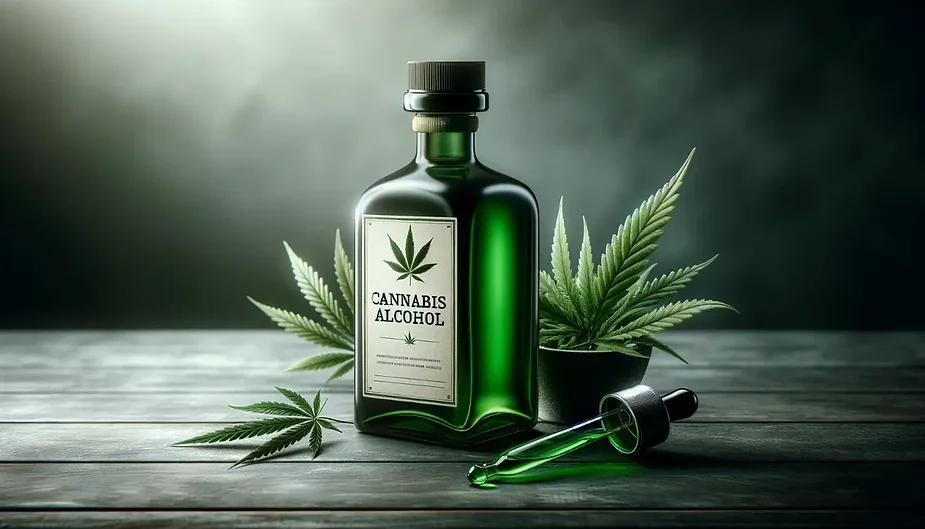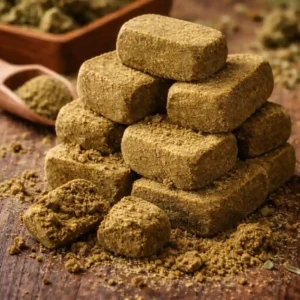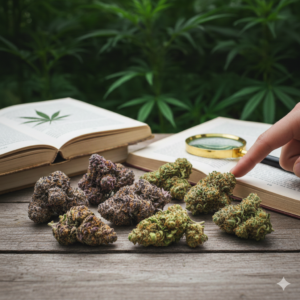Cannabis alcohol is a product that has captured the attention of both consumers and researchers due to its various applications and potential benefits. In this article, we will explore in detail the uses and properties of this compound, offering a comprehensive view that spans from its production process to its medical and legal applications.
Introduction to cannabis alcohol
Cannabis alcohol, also known as cannabis tincture, is a liquid extract obtained by immersing parts of the cannabis plant in ethyl alcohol. This process extracts cannabinoids such as THC (tetrahydrocannabinol) and CBD (cannabidiol) along with other beneficial compounds from the plant. The result is a concentrated liquid that can be used in various ways, including oral consumption, topical application, or as an ingredient in culinary recipes.
Manufacturing process of cannabis alcohol
The process of making cannabis alcohol is crucial for its quality and efficacy. It starts by selecting high-quality cannabis and food-grade ethyl alcohol. The plant is broken down into smaller components and mixed with alcohol, which allows the soluble compounds to dissolve effectively. This mixture is regularly stirred over a period that can vary from a few weeks to several months, depending on the specific method used. Finally, the mixture is filtered to remove solids, and the resulting liquid is cannabis alcohol.
Medical uses of cannabis alcohol
Cannabis alcohol has been used in both traditional and modern medicine for its multiple health benefits. Some of the most notable uses include:
Pain relief
The cannabinoids present in cannabis alcohol are known for their analgesic properties. They can be particularly useful in treating chronic pain, including those associated with diseases such as arthritis and fibromyalgia.
Treatment of anxiety and sleep disorders
CBD has anxiolytic properties that can help reduce anxiety levels and promote more restorative sleep. This makes it useful for people suffering from anxiety disorders or insomnia.
Anti-inflammatory and antioxidant
Cannabis alcohol contains compounds that have anti-inflammatory and antioxidant effects, which can contribute to reducing inflammation in the body and protecting against oxidative stress.
Legal considerations of cannabis alcohol
It is essential to be aware of local regulations regarding cannabis and its derivatives. In many places, the use of cannabis, including cannabis alcohol, is strictly regulated and may require a medical prescription or be limited to specific uses such as medicinal.
Culinary applications of cannabis alcohol
Aside from its medical uses, cannabis alcohol can also be used in cooking. Being an alcoholic extract, it can be incorporated into recipes to make cannabis-infused edibles. It is important to calculate the dosage correctly to ensure that the prepared meals are not only delicious but also effective in therapeutic terms and safe.
Neuroprotective benefits of cannabis alcohol.
Recent studies have suggested that cannabinoids, like those found in cannabis alcohol, might have neuroprotective properties. These compounds could play a crucial role in protecting brain cells against damage caused by neurodegenerative diseases such as Alzheimer’s and multiple sclerosis. Although research is still in its early stages, the prospect of using cannabinoids to mitigate the progression of these diseases opens new treatment avenues that could significantly change the current therapeutic approach.
Impact on the immune system
Cannabis alcohol has also shown to have modulating effects on the immune system. Cannabinoids can help regulate the immune response, reducing systemic inflammation and alleviating chronic inflammatory conditions such as Crohn’s disease and psoriasis. This modulating ability not only helps in treating inflammatory conditions but can also be beneficial in regulating autoimmune immune responses, where the body mistakenly attacks its own cells and tissues.
Recreational use and associated risks
While cannabis alcohol has many therapeutic uses, it is also used recreationally by some due to its psychoactive effects, mainly when it is high in THC. However, it is important to address the risks associated with its recreational use, which can range from mild side effects such as dry mouth and red eyes to more serious ones like anxiety and paranoia, especially at high doses. Education and proper regulation are essential to mitigate these risks and ensure that consumers are informed about the appropriate doses and potential effects of the product.
Conclusions
Cannabis alcohol is a versatile product with a wide range of beneficial applications. From its use in pain relief and anxiety reduction to its applications in culinary recipes, it offers an interesting alternative to other cannabis consumption formats. However, it is crucial to respect local laws and consult with a healthcare professional before starting any treatment with cannabis-based products to ensure their safe and effective use.
This compendium on cannabis alcohol underscores its importance and potential in the therapeutic and culinary fields, highlighting the need for more research and regulation to maximize its benefits and minimize risks.




